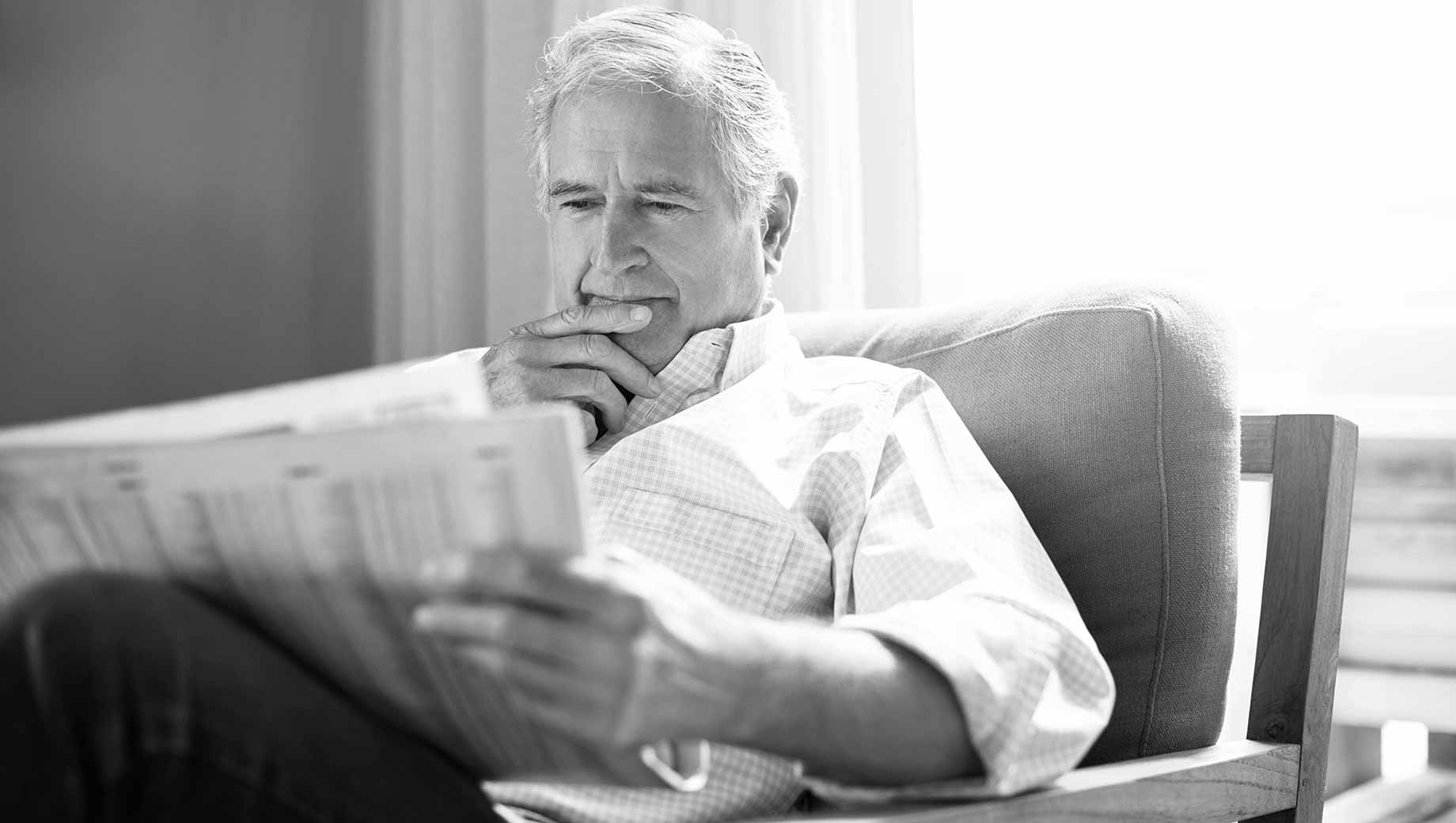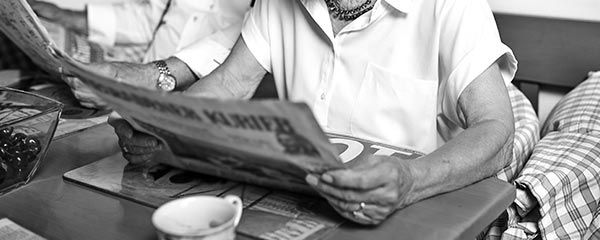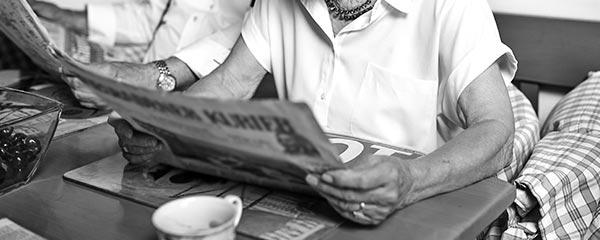Story Highlights
- 78% agree that downplaying threat causes public health risks
- 74% say exaggerating threat causes unnecessary harm to individuals, U.S.
- Public values media's watchdog role for coronavirus response
WASHINGTON, D.C. -- Media bias is a great concern for Americans, and the implications of such bias for society are magnified when the nation is in crisis, such as the current coronavirus pandemic. A new Gallup/Knight Foundation survey finds that a majority of Americans are concerned about biased news coverage of the coronavirus situation, including reporting that downplays the threat but also reporting that exaggerates it.
Democrats and Republicans diverge on whether exaggerating or downplaying the coronavirus threat is the greater risk. However, they generally agree that the crisis is worse than it needed to be, and that the news media should not wait for the crisis to ease before reporting on official actions that exacerbated the coronavirus situation.
These results are from an April 14-20 Gallup/Knight Foundation survey focused on the coronavirus situation, part of Knight Foundation's .
Public About Equally Likely to See Harm in Downplaying, Exaggerating Threat
Americans believe it is critical for the news media to accurately assess the threat of the coronavirus to the nation and to individuals. They widely perceive that real harm is done to the country by overstating, or understating, the threat.
Specifically, 78% of Americans strongly (60%) or somewhat agree (18%) that "any news organization that attempts to downplay the threat of the coronavirus puts the health of the public in jeopardy." But nearly as many, 74%, strongly (50%) or somewhat agree (24%) that "any news organization that attempts to exaggerate the threat of the coronavirus causes unnecessary harm to individuals and the country."
Partisanship informs what type of skewed coverage is considered harmful. More than twice as many Democrats (84%) as Republicans (35%) "strongly agree" that coverage downplaying the threat is harmful, although majorities of all party groups at least somewhat agree.
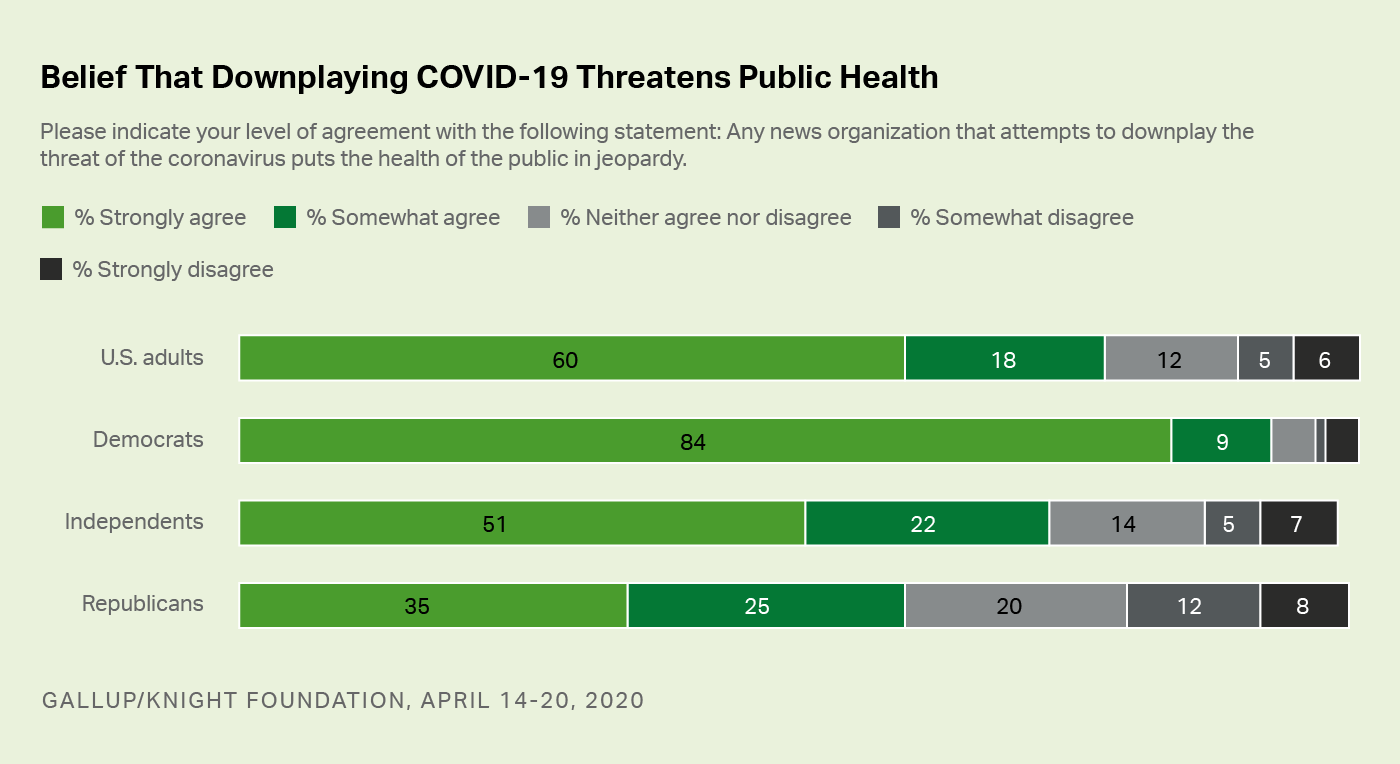
By contrast, twice as many Republicans (68%) as Democrats (34%) "strongly agree" that coverage exaggerating the threat is harmful. Again, majorities of all party groups strongly or somewhat agree.
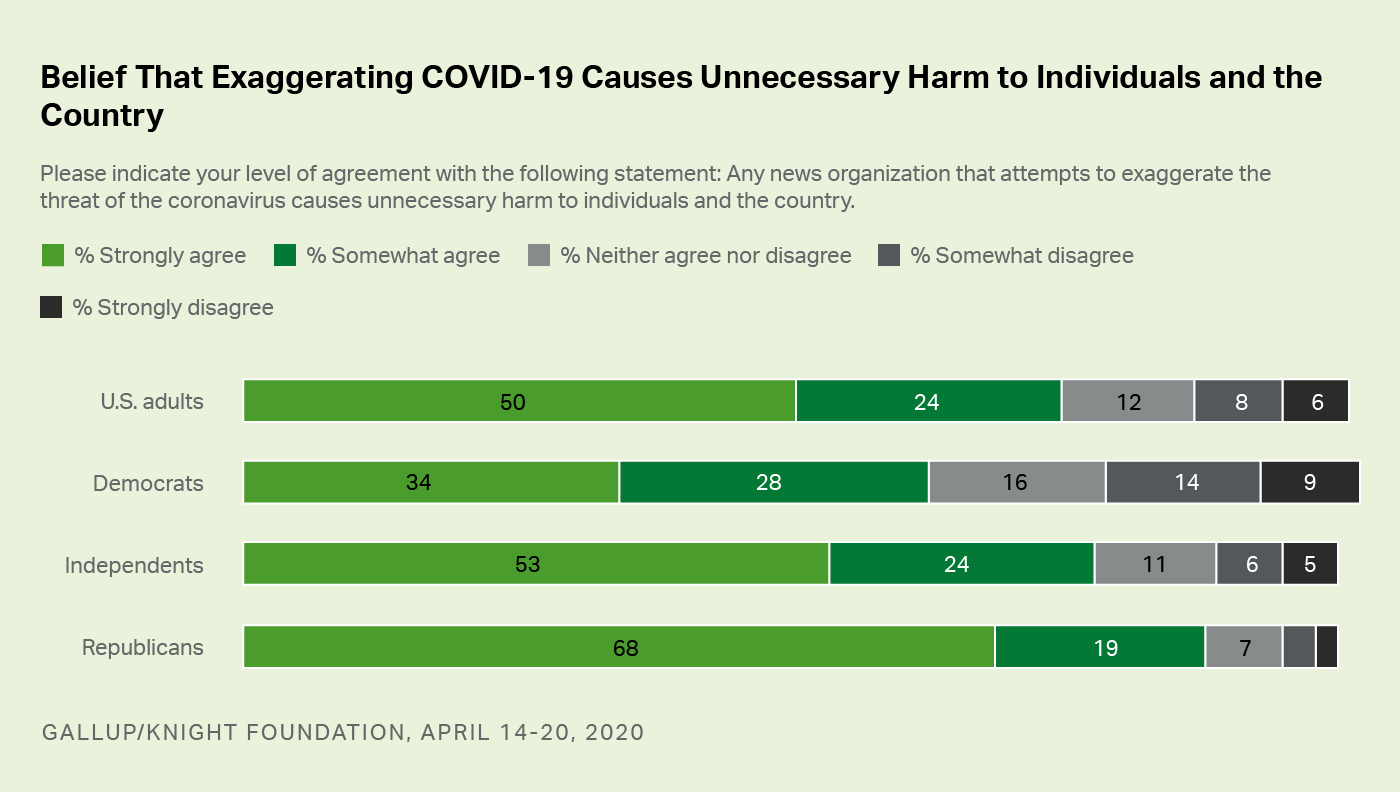
Partisans Agree: Situation Worse Than Necessary, Missteps Should Be Reported
Americans, including those from all party perspectives, largely agree that the harm the coronavirus has caused to public health and U.S. society is worse than it needed to be. They also agree that the media should report now -- rather than after the crisis subsides -- on any statements or actions made by government officials that contributed to the problem.
Seventy-two percent of Americans strongly agree (40%) or agree (32%) that the harm resulting from COVID-19 is worse than necessary. The percentages of party groups who agree range from 68% to 76%, with strong agreement similar among Democrats, independents and Republicans.
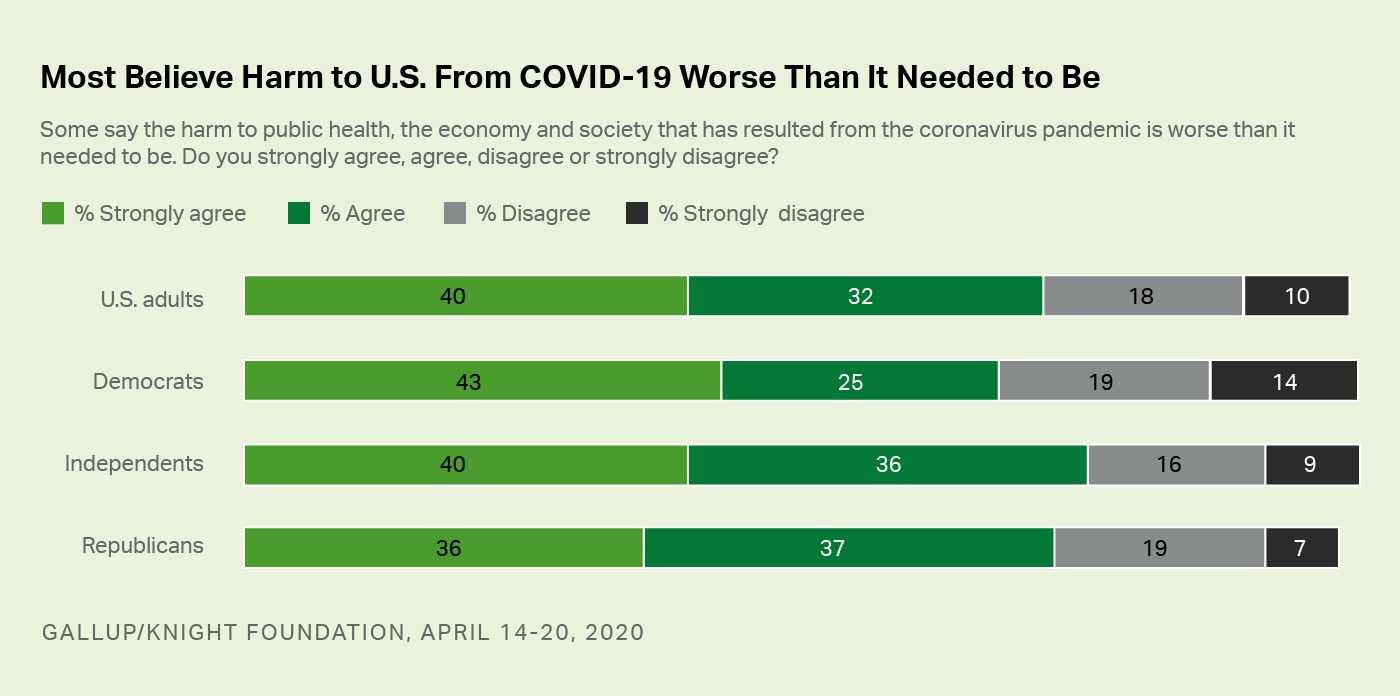
Asked to choose among various scenarios for when -- or if -- news media should cover statements or actions from officials that contributed to making the crisis worse, 77% say the media should report on those immediately. This opinion is shared by solid majorities of Democrats, independents and Republicans.
Eleven percent say the media should wait to cover that information until the worst of the crisis is over, but should report before the fall elections. Just 2% say the media should wait, including until after the elections. Nine percent -- including 18% of Republicans -- say the media should not report such information at all.
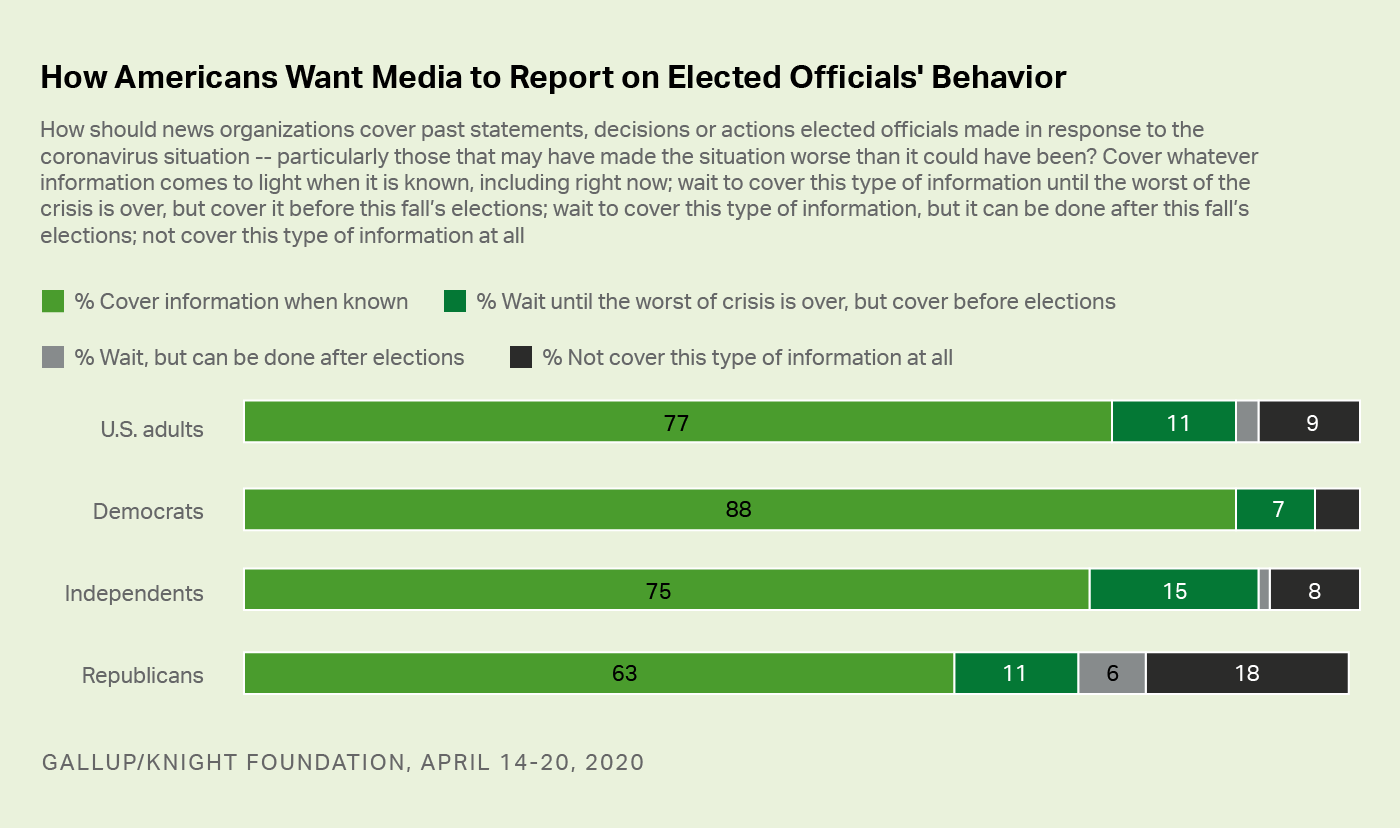
Implications
Americans have been more likely to disapprove than approve of the news media's response to the coronavirus situation at a time when most other institutions' responses have been rated more positively than negatively. This may indicate that people do not see the media as getting coronavirus coverage quite right -- either drifting too far in the direction of downplaying the threat or too far in the direction of exaggerating it.
The public recognizes the stakes are higher in coronavirus coverage, likely more than for other issues, given the pandemic's impact on public health, the U.S. economy and Americans' wellbeing.
To the extent Americans believe the media is going too far to downplay or to play up the coronavirus, they may see the media -- in addition to elected leaders and public health officials -- as responsible for making the crisis worse than it needed to be.
Nevertheless, the public still appears to value the media's watchdog role in investigating the decisions and statements made by public leaders and the extent to which those contributed to making the coronavirus situation worse than it could have been.
